Chapter two of Paul's book
Paul Hodgson has kindly allowed the DFC website to publicise his book, "When Push comes to Shove" in the forthcoming weeks.
Here's the link to the intro and Chapter 1
https://darlingtonfc.co.uk/news/when-push-comes-to-shove-1
Here's the second chapter, beginning in 1998:
The first home league match of the season was against Barnet. Mike and I had previously agreed to meet in the Dalesman pub where we were joined by Ian Carter, a friend of over twenty years, Stephen Lowson, another long-standing friend who had travelled up from his home near Cambridge, and Steve Keeney who you may recall from the previous chapter.
The Dalesman is the nearest pub to Darlington Football Club’s Feethams’ ground and is frequented by both home and away fans on match days, the latter often staying overnight in the B&B accommodation upstairs. One of the interior walls in the bar even provides the visitor with a pictorial representation of the town centre in the form of a mural.
After a few pints, the five of us left the pub and arrived at Feethams quite early, only to discover that the main gates were open and that the turnstiles were no longer in operation, so we made our way around the perimeter of the cricket pitch towards the newly-built East Stand.
Since Ian and Steve Keeney had season tickets, we left Stephen Lowson to join one of the disorganised queues of fans waiting outside some temporary ticket offices. Fortunately, with Mike being classed as my helper, both of us were admitted free of charge. Leaving the chaos behind us, we entered through the clearly-marked disabled entrance and were able to sample the facilities of the East Stand for the first time.
When I started to support the Quakers in the early 1970s, Feethams was already beginning to look outmoded and I can testify that it certainly didn’t have much space or indeed facilities for disabled fans. In fact, during the construction of the East Stand I was forced to sit in a rather cramped uncovered area of the West Stand paddock, near some orange portakabins, which a local wag dubbed the Olympic village.
With its separate disabled toilet near the main entrance, numerous pitch-level spaces for wheelchair users and good catering facilities, I could certainly have no complaints now on that score. The new East Stand struck me as being one of the best of its kind in the Nationwide League.
Visually-impaired supporters were also catered for and could now enjoy a full match commentary, provided by the local radio station, Alpha 103.2, which was relayed to them anywhere within the ground via special headsets.
As kick-off time approached, an announcer said that the start of the game would be delayed by five minutes because of the large crowds waiting to get in. Now that must have been a first for the opening league match of a season!
It seems no one will ever know the true size of the crowd that day. Apparently, the counter on one of the turnstiles ran backwards for a time! According to the local newspaper, The Northern Echo, the crowd was 4,200, but in the programme for the next home game the figure was given as 3,450.
However, before the new era kicked off, a minute’s silence was impeccably observed for the late Bob Barnes.
From our places in the pitch-side disabled area, Mike and I were both intrigued to see former youth team player Carl Pepper warming up with the rest of the squad. When the team was announced over the tannoy, we learned that he was a surprise inclusion at right back rather than the more experienced Adam Reed, who had just rejoined the club from Blackburn Rovers.
When the game did eventually get under way, the two of us witnessed a very good match. The Bees’ keeper, Lee Harrison, pulled off a string of tremendous saves to deny Darlo on several occasions and we hit the woodwork as well. New signing, Marco Gabbiadini, could and maybe should, have had a hat-trick, but for Harrison’s brilliance.
Barnet, whose shirts were sponsored by Loaded magazine, fired only two bullets during the course of the entire game, but both shots found the target with devastating accuracy. After so much hype and expectation, we were therefore brought back down to earth with a bump by that surprising 2-0 defeat. Nevertheless, despite losing our opening game, Mike and I were still confident about the season as a whole.
On our way out of the ground, we chatted to Stuart Gibson, the Darlington Youth Team Coach, as we made our exit around the perimeter of the cricket pitch. Stuart was pleased by the fact that one of his players (Carl Pepper) had made his first team debut. It was the first time I’d met Stuart and he seemed like a very knowledgeable guy.
Mike didn’t travel with me to our next game against Sheffield United for the first round first leg Worthington Cup tie, so Ian picked me up from work at half past four.
On our way down the A1, he started ribbing me about my not having been to Bramall Lane before. (This would be the seventy-sixth ground that I had visited at that particular time.) Mind you, I made sure that I reminded him that he hadn’t been to Plymouth or Chester unlike me!
On our arrival, we were both impressed by the size of the stadium and how it had been comprehensively redeveloped with the addition of the one-tier John Street Stand. With it being only half past six, we therefore went to the Railway pub for a few pre-match beers.
I found it unusual that I was able to buy a programme inside the pub rather than outside the ground. The bar was decorated with many football souvenirs including a photograph of former Darlo keeper John Hope, who later went on to play for Sheffield United. He is the father of Chris and Richard Hope, who also both played for the Quakers.
In the bar I had a lengthy conversation with some Blades’ fans about Reg Brearley, the former director and major shareholder of the Quakers.
Ian and I both went in the away end of the Bramall Lane Stand where the stewards were very helpful and even got me a coffee. There was plenty of room for my wheelchair and so I sat in front of the seats.
At half time, I asked Ian to buy me one of those staples of the football fan, a meat and potato pie. However, this was not a sensible decision! Poor Ian had a terrible time trying to feed it to me because the crust just disintegrated in his hands and the filling was far too runny. As usual, I managed to choose one of the most difficult things to eat!
My problems with the pie paled into insignificance when set against Darlo’s attempts to blunt the Blades’ attack. For much of the game our defence was overrun and so it was quite an achievement to keep the score down to only a 3-1 defeat. (Darren Roberts got our only goal.) Overall, I have to admit, we were beaten by a far better team on the night.
Before heading home, the two of us went for a quick pint in the Railway. We left Sheffield at about a quarter past ten and, after an uneventful journey, arrived back in Darlington at a quarter to midnight.
For our next game away at Hull City I travelled by car with John Gray, another long-standing friend, and a lad called Paul Heaney from Newton Aycliffe.
On arrival in Hull, the three of us went to a couple of pubs in the market place. First, we called in at the Bonny Boat where we had lunch (fish and chips for me). After a couple of pints, the three of us headed to Café Bar 1880 and then proceeded to go around several other pubs in the city centre and must have had about six pints each except for Paul Heaney who didn’t drink because of health problems.
In one of the pubs that we visited we met Roger Martin and Karl Alexander from Colchester – more of them later in this book – who seemed as drunk as John and me.
We got to the ground at a quarter past three and missed the kick-off due to the fact that John decided to buy another pint at five minutes to three. To rub salt into the wound, we also missed the first goal! Why John travelled so far and then missed the start of the match just so that he could have another drink was something that I couldn’t understand, though it was something I’d got used to over the years.
Since I was refused entry in the away end, I had to go in the disabled area on my own, with John joining Paul and the other visiting supporters on the North Terrace. However, he dutifully came back at half time to take me to the toilet and fetch me a cup of coffee. Luckily, a steward also managed to get me a programme. I was fortunate as they were sold out, but he acquired one from a club official. It was really good of him to go out of his way like that on my behalf.
Darlo played really well and won 2-1 with goals from Steve Gaughan – I missed that one – and Brian Atkinson.
After the game John and I had a few more pints in the social club. Again, Paul was on soft drinks.We left Hull at six o’clock and arrived in Darlington an hour and a half later. On our progress through the town centre – which took in the Pennyweight, the Golden Cock, Humphreys and Reds – we met several Darlo fans who were just as excited as we were by the result. Deciding to make a night of it, we ended up in the Dalesman and didn’t get back home until half past one in the morning.
It had certainly been a good day – plenty to drink and far more importantly, a Darlo win. What more could a man want?
By the time we played the second leg against Sheffield United, the new East Stand had been christened the Worthington Stand and we were able to have a few drinks in the bar, which was called the Centre Spot. There had been a debate as to whether the East Stand should be named after a former player, for example Ron Greener, a legendary figure who played 490 games for the club in the 1950s and 1960s. Unfortunately, that wasn’t to be.
Ian and I both bought a red Darlo away shirt from the club shop since they had just been delivered and we had been waiting to get one. I have most of the replica tops going back to the 1989-90 season, when Darlo were in the Vauxhall Conference. Once a new one comes out I buy it and the old shirt then goes in the top of my wardrobe, never to be worn again.
Before the kick-off, a Sheffield United fan won the prize holiday draw, which seemed to set the scene for our encounter. After forty minutes Glenn Naylor was sent off for the Quakers.
The Darlo fans exacted their revenge by chanting: “Sh*t foreign import, you’re just a sh*t foreign import” to the Blades’ player Vasilis Borbokis. I found this really appropriate, as he was an awful player, way below Third Division standard, let alone First!
In my confusion, after ninety minutes Quakers were winning 2-0 with Dean Holdsworth (own goal) and Jason De Vos on the scoresheet. This meant that it was now 3-3 on aggregate and so I actually thought we’d won the tie on the away goals rule, but I was wrong and the game went to extra time, during which Sheffield scored twice through Dean Saunders.
So, despite playing really well, we were out of the Worthington Cup for another year, largely due to a poor first leg performance.
Interestingly, the Blades only brought a measly two hundred fans to Feethams, whereas we took nearly a thousand to Bramall Lane. Having said that, many of the “part-time” Darlo supporters who boosted our attendance that night left after the Blades scored their second goal. They would only be back if we drew a big name team in the FA Cup.
Halifax Town were our first ever opponents in the old Third Division North of the Football League back in 1921. We won 2-0 that day with goals from Bill Hooper and Hugh Dickson. Now seventy-seven years later, after many battles in between, they were our visitors again.
Before the match, I met up with Mike and Ian in the Dalesman. After our excellent victory at Hull, Mike thought we’d win easily. I wasn’t so sure after playing so well against Barnet, having most of the chances and still losing. I thought that maybe the fans were expecting too much, with the team needing time to gel.
The three of us left the Dalesman after a couple of pints and headed for the Centre Spot where we bumped into Steve Keeney. Steve and I talked about the possibility of going to Exeter later on in the season for a weekend. I quite fancied the idea. He said that he would look into it and get back to me nearer the time.
For this game Ian went with me in the pitch-side disabled area.
The game kicked off late after a minute’s silence at ten minutes past three for the victims of the Omagh bomb. All the other Premiership and Football League matches that day paid homage to the dead and I’m glad to say that the minute’s silence at Feethams was impeccably observed.
During the match I got chatting to a fellow wheelchair user who happened to be a Halifax fan. He seemed really pleased that his club had gained promotion back to the Football League after several years’ absence. The enthusiasm he showed for his team made me think of when I was his age, i.e. in my early teens. He seemed to be a mine of information about the Shaymen. Ian commented that he was a younger version of me. In many ways he was right.
The game finished a 2-2 draw with Glenn Naylor and Marco Gabbiadini scoring for the Quakers. However, I thought it was two points thrown away as Halifax were a poor team and there for the taking.
After the match Mike, who had watched the game from the East Stand, came down to meet me and we went to the Centre Spot. Ian declined the offer of a pint and headed home to Catterick.
While we were there we got talking to Ken Lavery (the club’s Commercial Manager). He was harping on about the Darlington Cricket Club Committee – I seem to recall that he referred to them as “Old farts” as well as describing them in other somewhat more colourful terms!
By way of explanation, there was a running feud between the Football and the Cricket Clubs at this time. It was generally felt by the Football Club that they were being taken advantage of by their landlord, the Cricket Club, in respect of the cost of renting the ground.
Apart from the earthy language and barbed comments, much of what Ken had to say was exactly right – over the years I could never understand how the Cricket Club held the Football Club back. Even when Darlo were mediocre, we still got crowds of around two thousand – once Mike and I went to a first team game involving the Cricket Club and there was a crowd of only thirteen in attendance!
Lyn Burnett, one of Mike’s work colleagues, then took Ken aside and asked if it would be possible to book an executive box for the forthcoming Hartlepool game. Mike and I had decided it would be interesting to see a match from a different perspective, so we hoped that Lyn’s charm offensive would have the desired effect! Unfortunately, the box was already taken, so we booked it for the Peterborough game instead.
Anyway, after a few more pints I headed home, as I wasn’t in the mood for staying out all night.
I travelled to Rochdale for our next fixture by car, once again with John Gray and Paul Heaney, unlike Mike who caught the Supporters Club coach along with Roger Martin and Steve Keeney.
John and I together with Paul, went for a drink in a pub near the ground with a bowling green at the rear called the Church. There we bumped into Steve Keeney who bought us a pint. By this time Mike had joined us together with Roger Martin. Mike had a copy of the Flippers Side manuscript in a carrier bag. I was excited and wanted to show it to Roger, like a kid with a new toy. He seemed suitably impressed after reading snippets of it and when I told him about the letter from Hamilton & Co.
Mike met a friend of his called Andrew Heydeman who he went to university with. He’d actually brought the copy of the Flipper’s Side manuscript that I’d been showing to my mates in the pub for him to read.
While Mike and Andrew were chatting on the terraces of the away end, Neil Johnson – one of the founder members of DAFTS – gave Mike’s friend a form to fill in. Andrew didn’t have the heart to tell him he wasn’t really a Darlo exile, so he dutifully filled in his details. To this day he’s probably still on their mailing list! Andrew is actually a staunch Manchester City fan who lives near Bury, though, according to Mike, he does have a soft spot for Darlo.
During the game, I asked if I could be moved closer to the action, since I had been told to stay behind a yellow line that was yards away from the pitch. I simply asked a steward, very politely, “Excuse me, mate, can you put me in the away end? I’ve got poor eyesight and I’m too far away from the pitch.”
When no action was taken, I continued to complain – after all I’d travelled almost 100 miles and wanted to see the match. Eventually, the supervisor was called, and to his credit, after listening to what I had to say, allowed me to sit at the side of the pitch. Common sense had prevailed and at last I was able to see what was actually happening.
The match ended in a 0-0 draw, with Darlo under pressure most of the game. With this in mind, John and I were more than happy with the result.
For the home game with Cardiff City on Bank Holiday Monday I went up with Ian in the lift to the balcony area of the East Stand for the first time.
This afforded me easy access to an elevated viewing area that could comfortably accommodate at least a dozen wheelchairs, was fully protected from the elements and had its own designated disabled toilet. The view from up there was certainly impressive and so were the facilities.
After Michael Oliver had struck the post and Jason De Vos had rattled the crossbar with a header, Darren Roberts broke the deadlock on forty-two minutes. Picking up a loose ball, he hit a twenty-five yard screamer into the top corner of the net.
The second half saw more sustained Darlo pressure. On seventy minutes a cross from Marco Gabbiadini found the unmarked Roberts racing into the box and he netted from twelve yards out to make it 2-0. Five minutes later Cardiff defender Scott Young powered in a header past his own keeper from Glenn Naylor’s corner to make it 3-0. Somewhat controversially, Roberts was then denied a hat-trick when the referee awarded a free kick after he had scored what appeared to me to be a perfectly legitimate goal.
Roberts, who had been previously dropped from the team, was particularly outstanding, giving the manager, David Hodgson, food for thought.



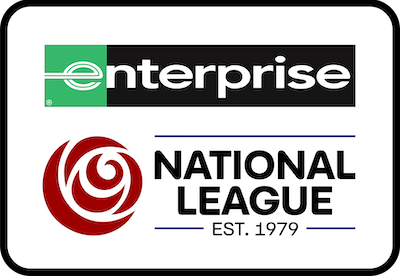
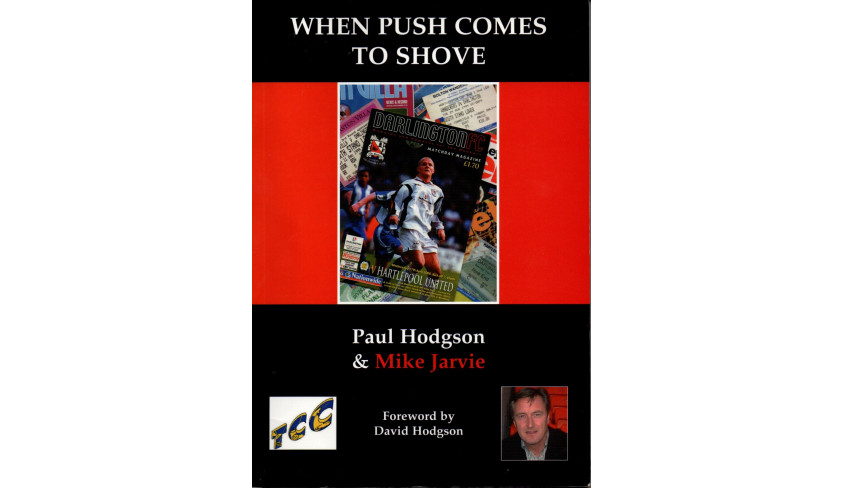
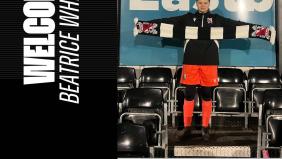
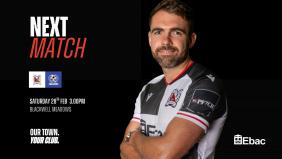


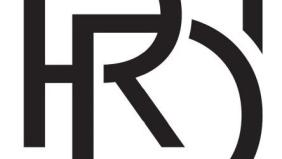

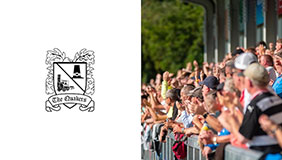
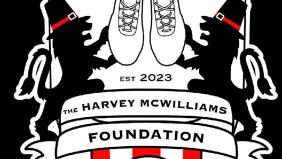
-article-list.jpg)
